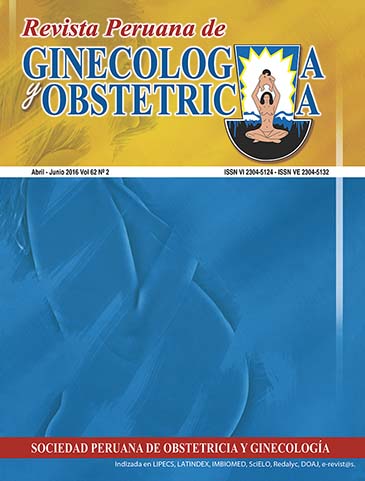Knowledge, attitudes and practic es regar ding abortion in a sample of obstetrician-gynecologists from Ecuador
DOI:
https://doi.org/10.31403/rpgo.v62i1899Abstract
Objectives: To determine knowledge, attitudes and practices regarding abortion in an intentioned sample of obstetrician/gynecologists who are provincial leaders of the Federación de Sociedades de Ginecología y Obstetricia del Ecuador (FESGO). Design: Prospective, correlational, cross-sectional, and analytical survey. Setting: Federación de Sociedades de Ginecología y Obstetricia del Ecuador (FESGO). Participants: FESGO obstetrician/gynecologists provincial leaders. Methods: A structured and validated survey was applied to an intentional sample of 33 obstetrician/gynecologists. The survey was based on experiences in the region, general and demographic information of the respondent, theoretical knowledge about the epidemiology of abortion and maternal death, attitudes about the management of unsafe abortion, and practice on misoprostol prescription and surgical aspiration. Main outcome measures: Knowledge, attitude and practices. Results: The survey respondents were 49 years old average, had 16 years of medical practice, and stable family relations, with declared children and religion. They considered maternal death due to abortion of high priority because they attended public and private patients with frequent history of induced abortion and use of misoprostol. They also considered the expansion of reasons for abortion in the light of a potential reduction in mortality, even if the number of cases increased. Most considered sufficient their knowledge on reproductive rights and felt proficient with respect to counseling on misoprostol, although high satisfaction on induced abortion counseling was just 51%. Conclusions: Provincial leaders of this sample knew about abortion and its comprehensive care. Knowledge was high, but attitude and practices were diverse and require more awareness and training. Further studies are needed in a b broader federated population of obstetrician/ gynecologists. Educational and sensitizing interventions are needed to improve the quality of abortion care.Downloads
Download data is not yet available.
Downloads
Published
2016-07-12
How to Cite
León, W., Yépez, E., Nieto, M. B., Grijalva, S., Cárdenas, M., Carrión, F., & Miranda, O. (2016). Knowledge, attitudes and practic es regar ding abortion in a sample of obstetrician-gynecologists from Ecuador. The Peruvian Journal of Gynecology and Obstetrics, 62(2), 169–174. https://doi.org/10.31403/rpgo.v62i1899
Issue
Section
Artículos Originales
















